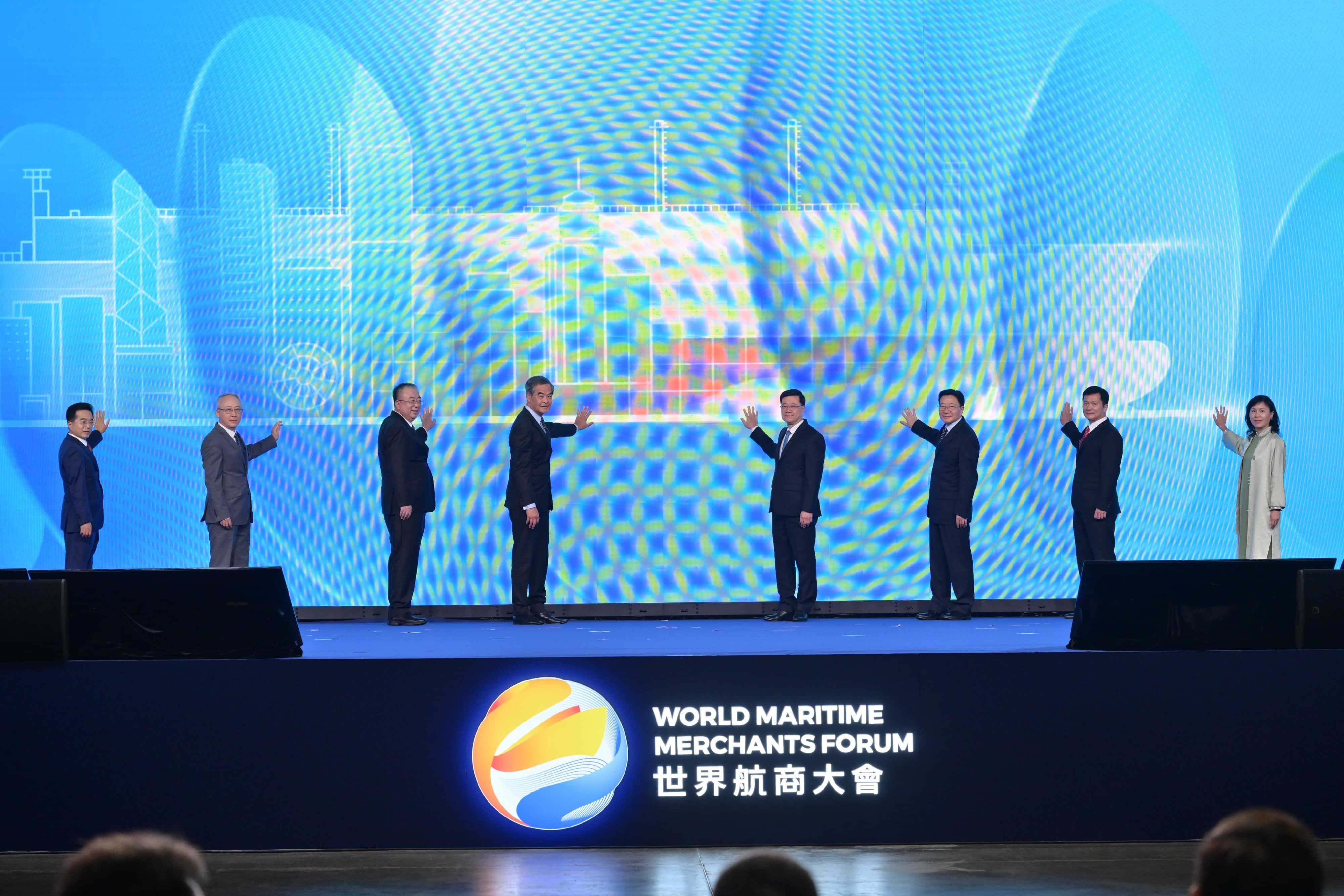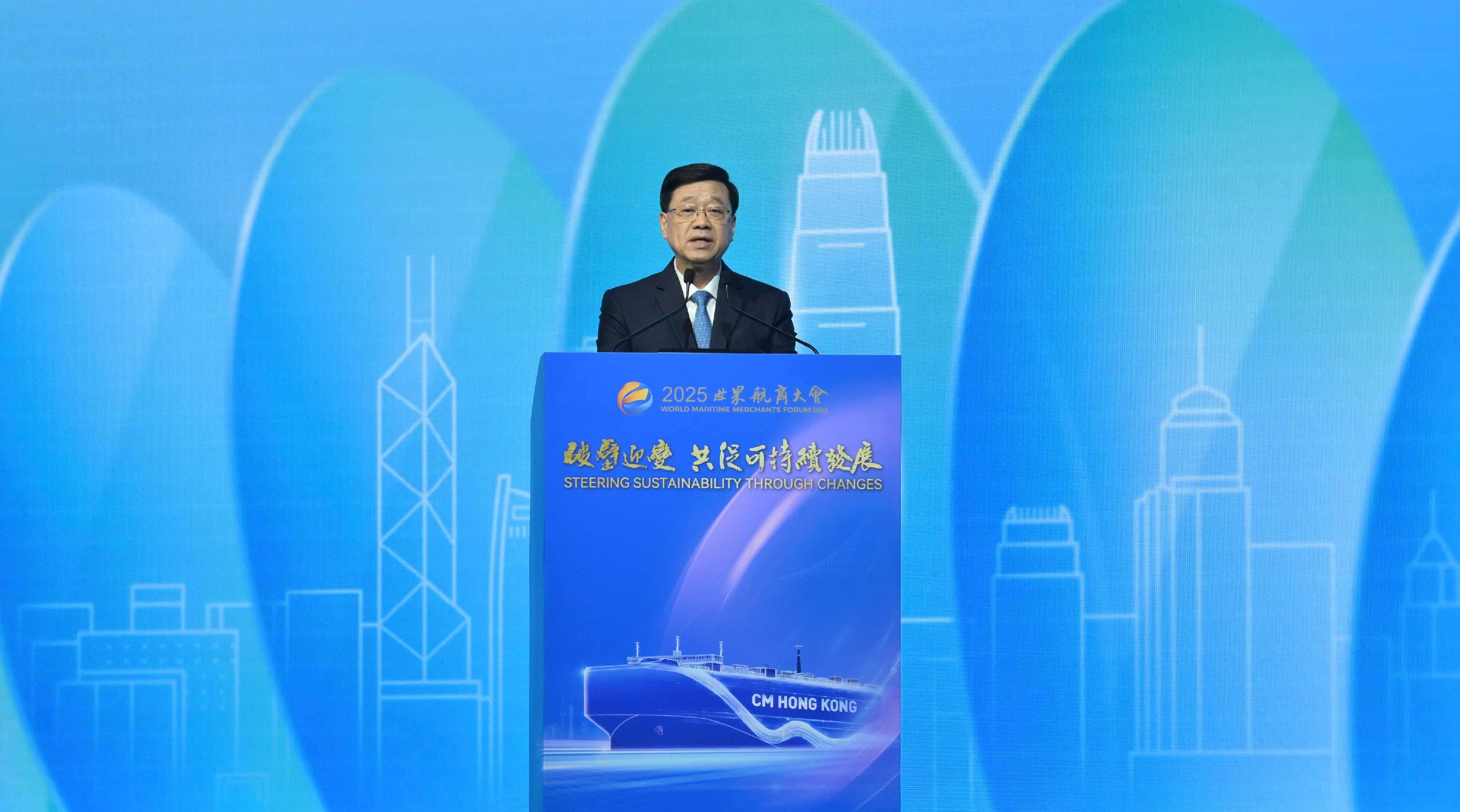
The Hong Kong Special Administrative Region has pledged to uphold its role as a stable, reliable and dynamic maritime hub by leveraging the shifting maritime trade patterns, pursuing decarbonization and harnessing digital transformation.
Leung Chun-ying, vice-chairman of the National Committee of the Chinese People’s Political Consultative Conference; Zhou Ji, director of the Central People’s Government’s Liaison Office in the Hong Kong SAR; Transport Vice-Minister Fu Xuyin, and Chief Executive John Lee Ka-chiu joined the opening ceremony for Hong Kong Maritime Week 2025-cum-World Maritime Merchants Forum 2025 on Monday.
“In a world being reshaped by geopolitical discord, technological disruption and climate change, Hong Kong’s role as a stable, reliable and dynamic maritime hub has never been more vital,” Lee said at the ceremony.
READ MORE: China revises regulations on international maritime transport
“Our tax concession regime for high-value-added maritime services continues to attract global businesses. And we are planning to extend half-rate tax concessions to physical commodity traders, further integrating the critical pillars of trade, commodities and shipping here in Hong Kong,” the chief executive said.
He added that, being proximate to the Chinese mainland — the world’s largest green maritime fuel producer — Hong Kong has a critical advantage in pursuing the International Maritime Organization's Net-Zero Framework, with the target of achieving net-zero carbon emissions in international shipping by around the year 2050.

Financial Secretary Paul Chan Mo-po, at the second edition of the Hong Kong Global Maritime Trade Summit on Monday, highlighted three strategies that Hong Kong can adopt to transform the SAR’s maritime sector.
The trade summit is organized by the International Chamber of Shipping which represents over 80 percent of the world’s merchant fleet. The summit is expected to attract more than 300 global maritime leaders from some 30 economies.
Chan said Hong Kong can make use of the shifting maritime trade patterns by following the intra-Asia trade flows. “As a manufacturer, the Chinese mainland will continue to demand vast quantities of raw materials and components from Southeast Asia, Africa and the Pacific, while as a vast consumer market, the country will drive continued growth in the imports of food, fashion, electronics and other goods.”
The finance chief added: “Intra-Asia container volumes are projected to reach more than 42 million TEUs (twenty-foot equipment units) by 2028, representing 3.8 percent growth per year, outpacing the global average.”
ALSO READ: Key maritime merchants forum in HK helps steer course for shipping industry
The second opportunity is decarbonization. “Maritime decarbonization represents a multi-trillion-dollar investment opportunity through 2050. The transition to zero-emission marine fuels could create up to 4 million jobs globally across the energy supply chain. Here in Hong Kong, we are embracing this. Our goal is to provide bunkering services for green fuels to ocean-going vessels more than 60 times per year by 2030, involving over 200,000 metric tons of green maritime fuels.”
The third strategy is to deploy artificial intelligence, blockchain and advanced data analytics to improve the operational efficiency of ports and global container lines.
“This is where Hong Kong also comes in, with our vibrant technology and startup community, many of which are pioneering innovations in smart logistics. They can play a role not only in supporting our own transformation but also in serving the broader region,” Chan said.
Secretary for Transport and Logistics Mable Chan said the Transport and Logistics Bureau is establishing "partner port" relationships with strategic ports in the Chinese mainland and key Belt and Road Initiative regions to enhance mutual competitiveness and resilience.
Hong Kong is home to more than 1,200 port and maritime-related companies specializing in ship management, finance, insurance and law. For the sixth consecutive year, Hong Kong has been ranked fourth globally in the International Shipping Center Development Index.


